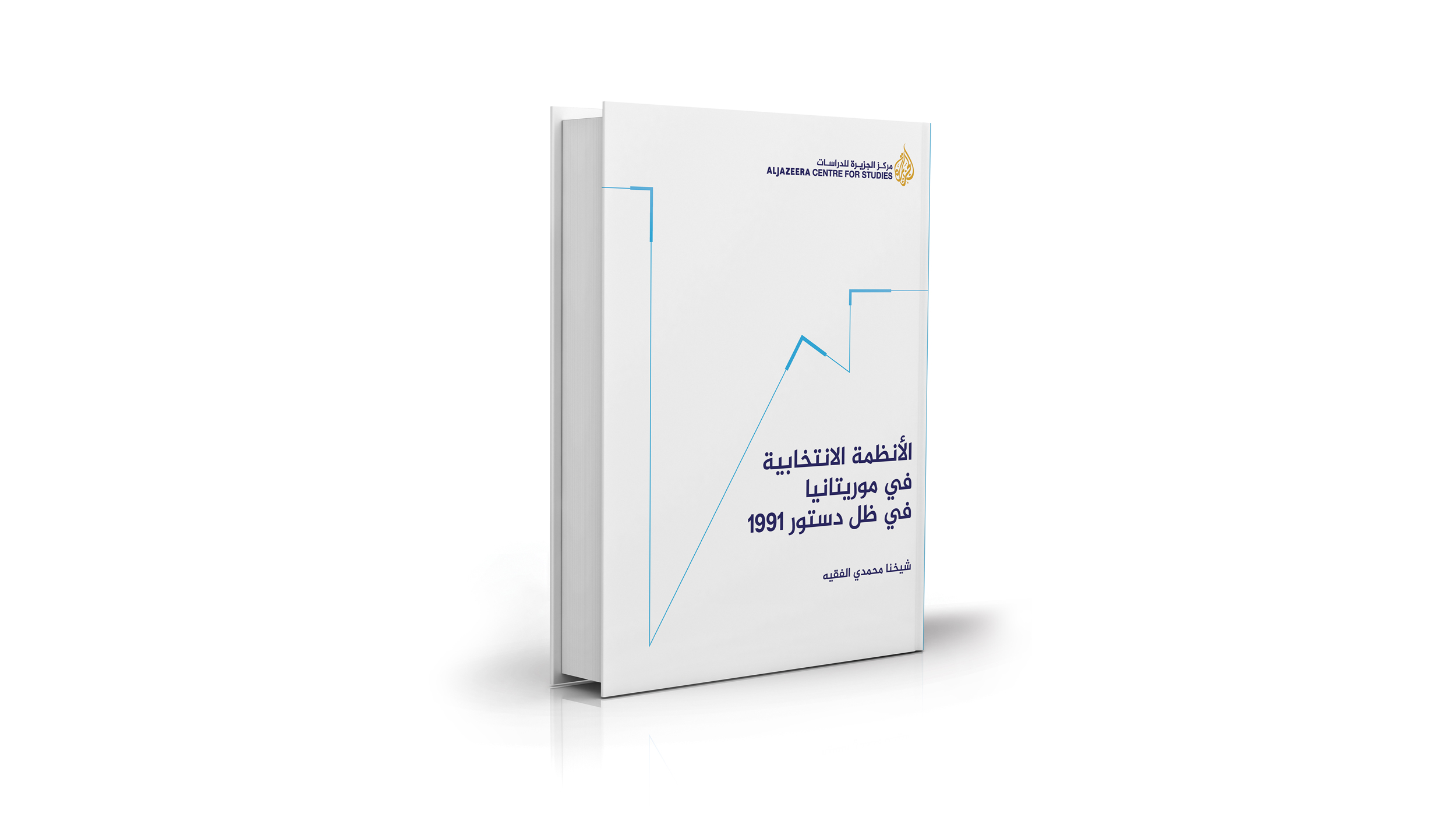
Al Jazeera Centre for Studies published a new book today, 24 July 2024, entitled Al-Andhima al-Intikhabiya fi Mauritania fi Dhill Dustur 1991 (Arabic: Electoral Systems in Mauritania under the 1991 Constitution) by legal researcher Dr. Cheikhna Mohamedi El Fakih.
The book begins with the premise that Mauritania has lagged behind in achieving the desired democratic progress partially due to the flaws and shortcomings of its electoral system. Monitoring and analysing these issues, and proposing visions and recommendations to address them, are seen as crucial to accelerating democratic transition, solidifying its foundations and strengthening its mechanisms. Building on this premise, the author investigates Mauritania's electoral system as a constant variable and its political impacts as a dependent one. This analysis identifies the strengths and weaknesses of the system, assesses its alignment with social and political realities, and explores avenues for its reform and improvement.
Among the author’s criticisms against the Mauritanian electoral system is the proliferation of laws that regulate it without being consolidated into a single legal code for easy reference and its mismatched division of electoral districts with the population density of each state and district. Additionally, he points out that the law related to combating political finance, which negatively impacts the electoral process, is not enforced and remains no more than “ink on paper”. Furthermore, he highlights the conditions for candidacy and their challenges, such as age requirements that hinder youth participation, and the requirement for endorsement by elected officials and parliamentarians rather than directly by voters without intermediaries. The frequent legal amendments just before electoral deadlines, and the failure to adopt technological tools to facilitate voting for residents of remote areas, as well as the barriers that hinder women from progressing in seeking candidacy in various types of elections are also mentioned.
After thoroughly identifying and analysing the shortcomings of the Mauritanian electoral system, the author presents his approach to addressing these issues along with his related proposals.
Cheikhna Mohamedi El Fakih is a legal researcher at the African Court on Human and Peoples' Rights in Arusha, Tanzania. He served as an adjunct professor of public law at the Faculty of Legal and Economic Sciences at the University of Nouakchott in Mauritania from 1999 to 2017. El Fakih holds a PhD in public law from the same university. He has also worked as a legal advisor in Mauritania and served as an expert for the Independent National Electoral Commission. Moreover, he contributes articles to various Mauritanian newspapers and websites. His writings have been published in Arabic periodicals, including Al-Mustaqbal al-Arabi and Al-Uloom as-Siyasiya wa al-Qanun.
The book is available here in Arabic.